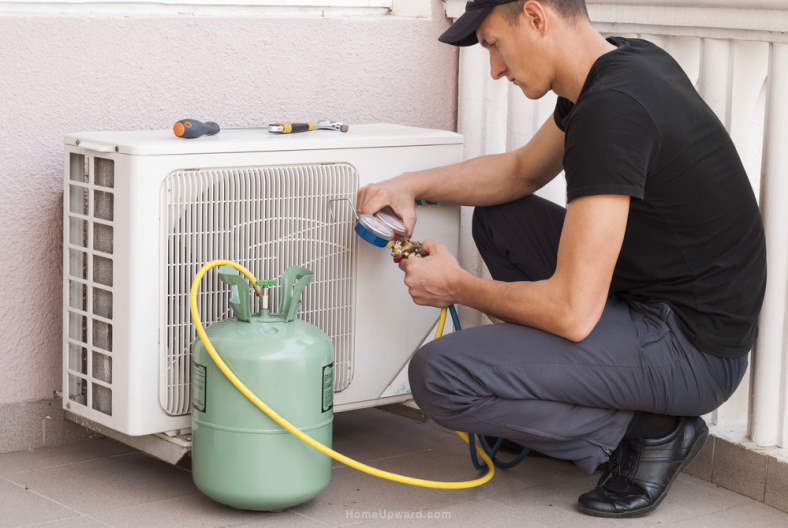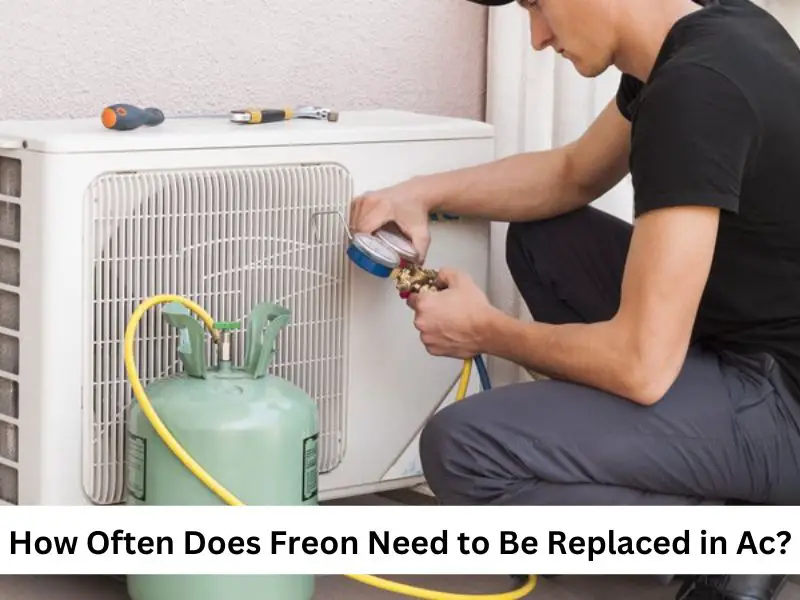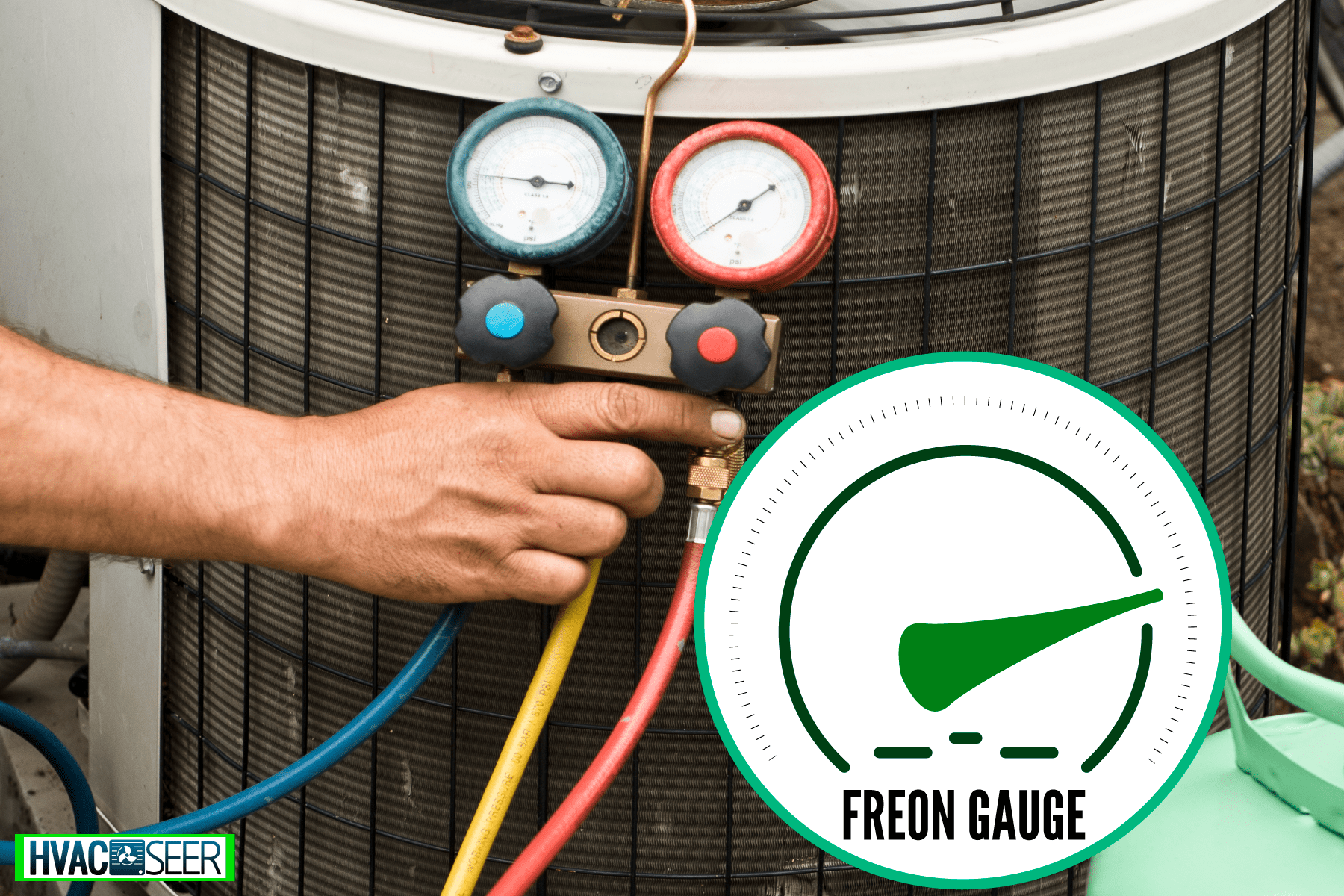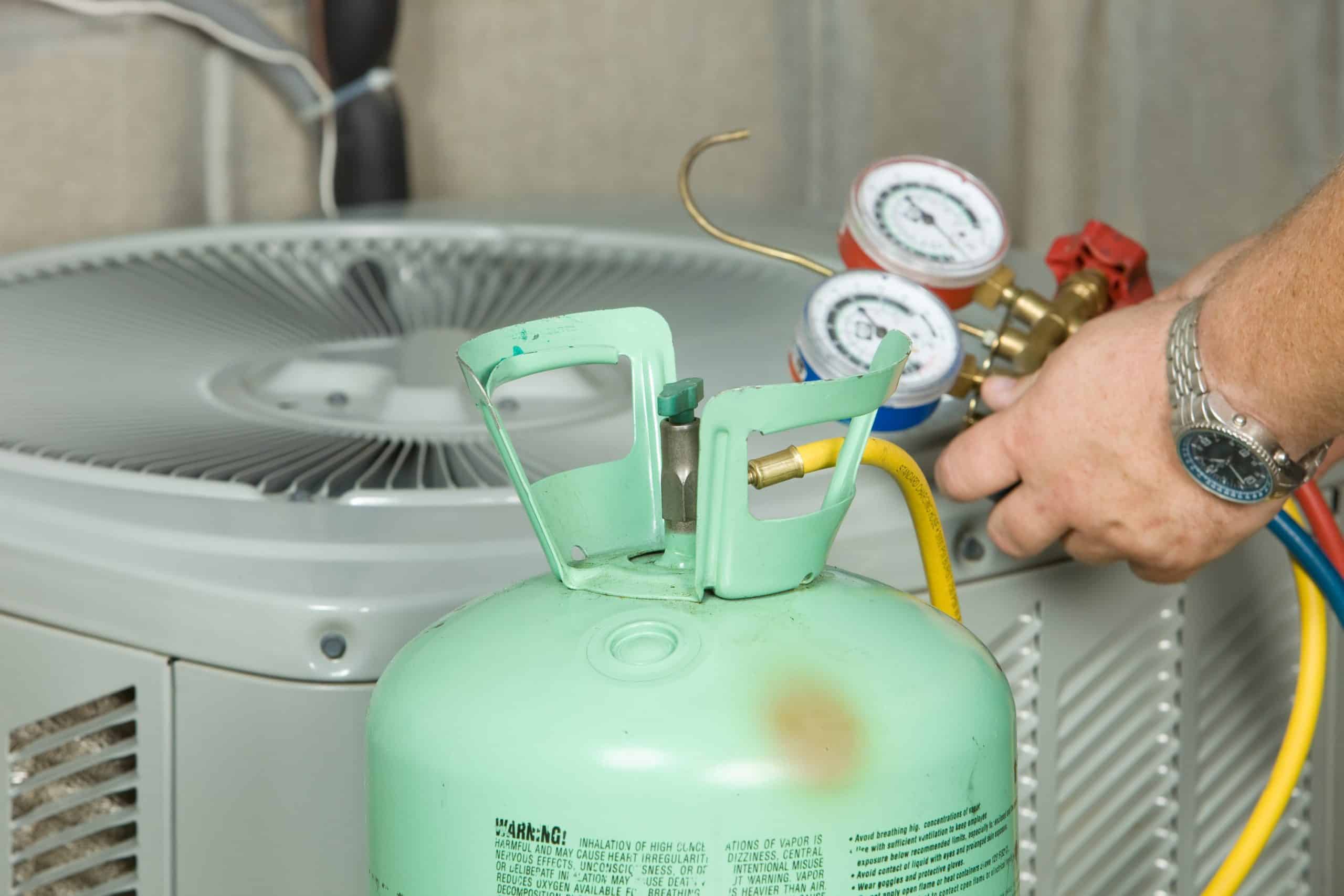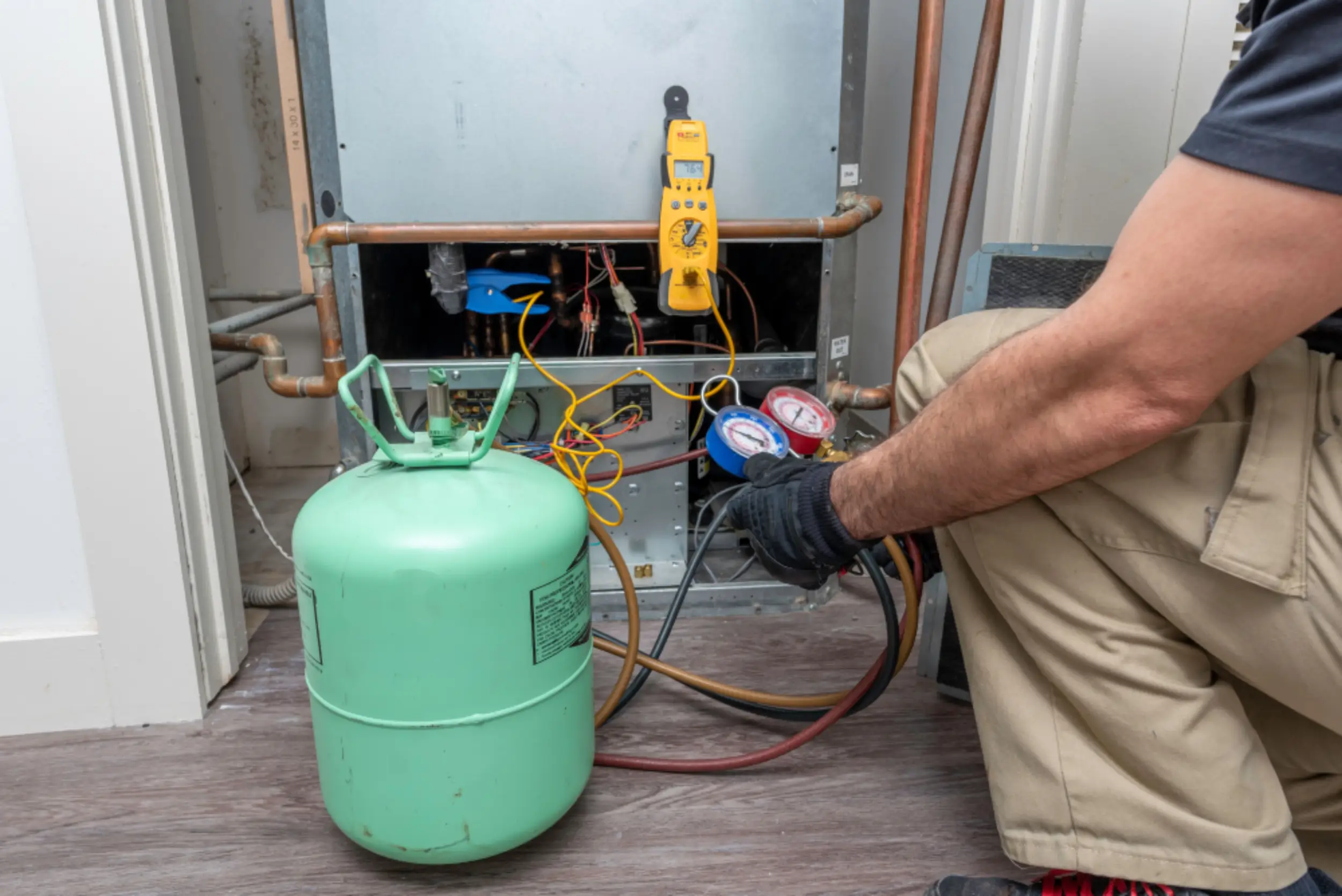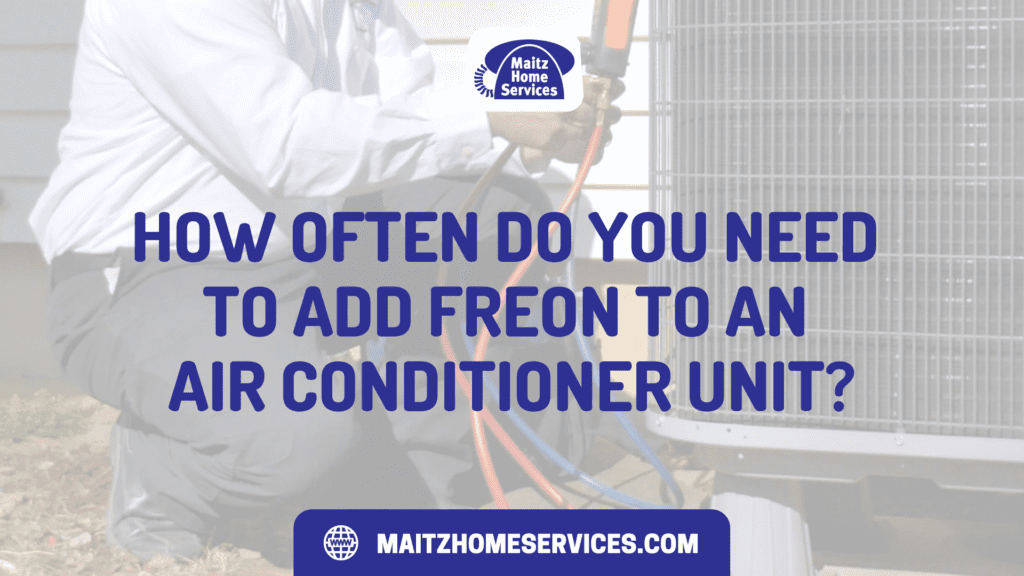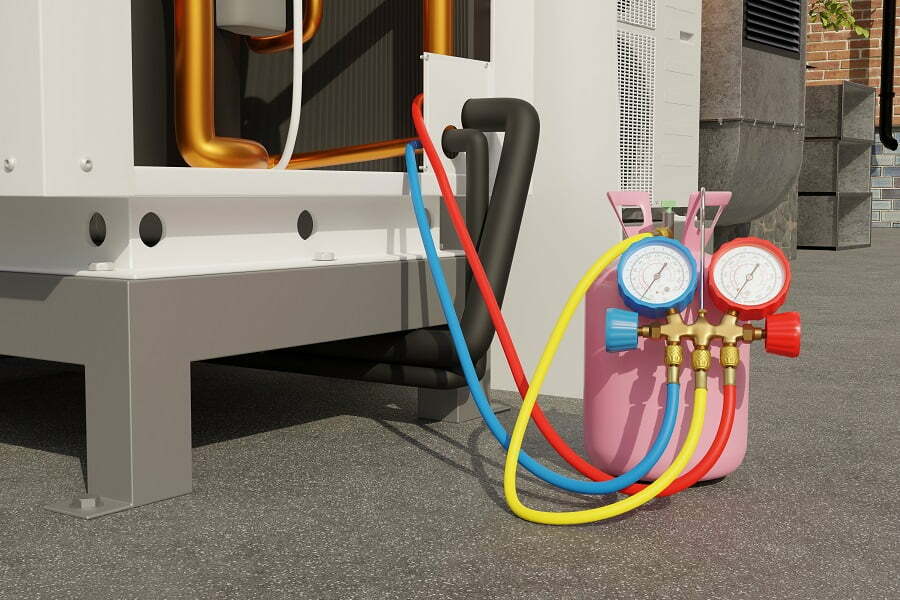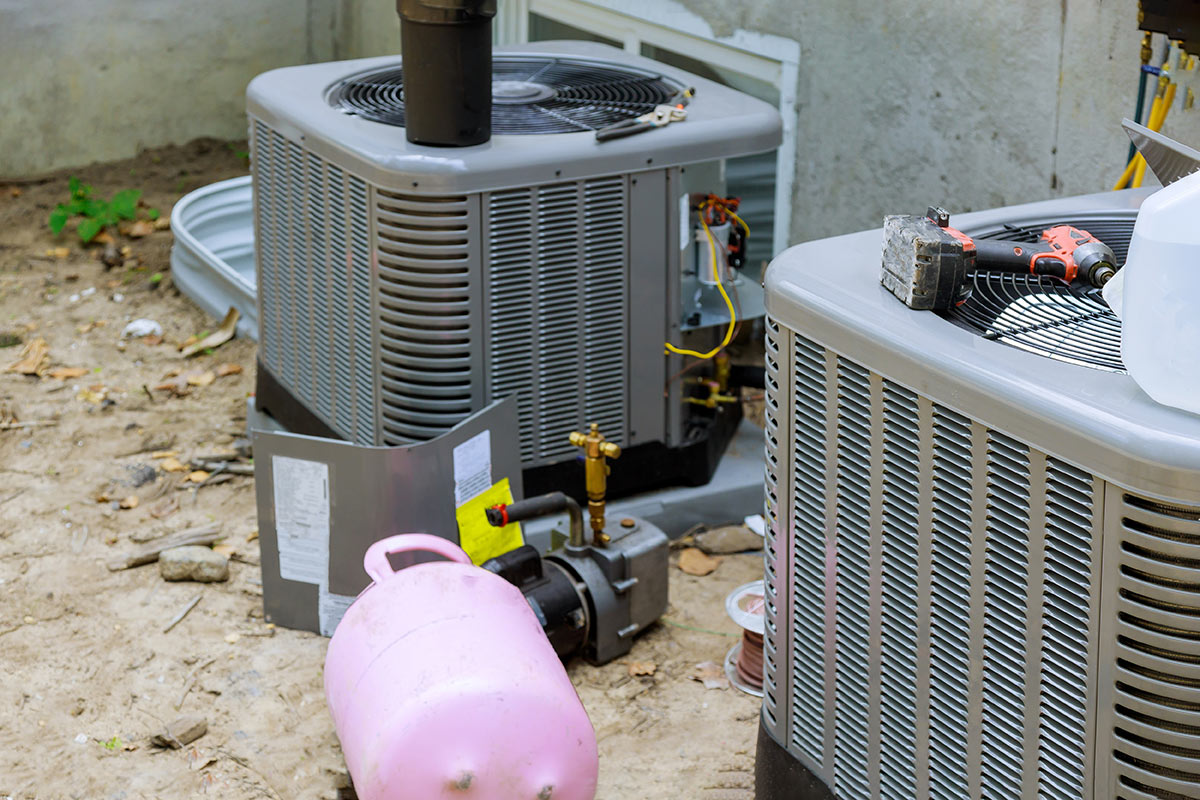How Often Do Air Conditioners Need Freon
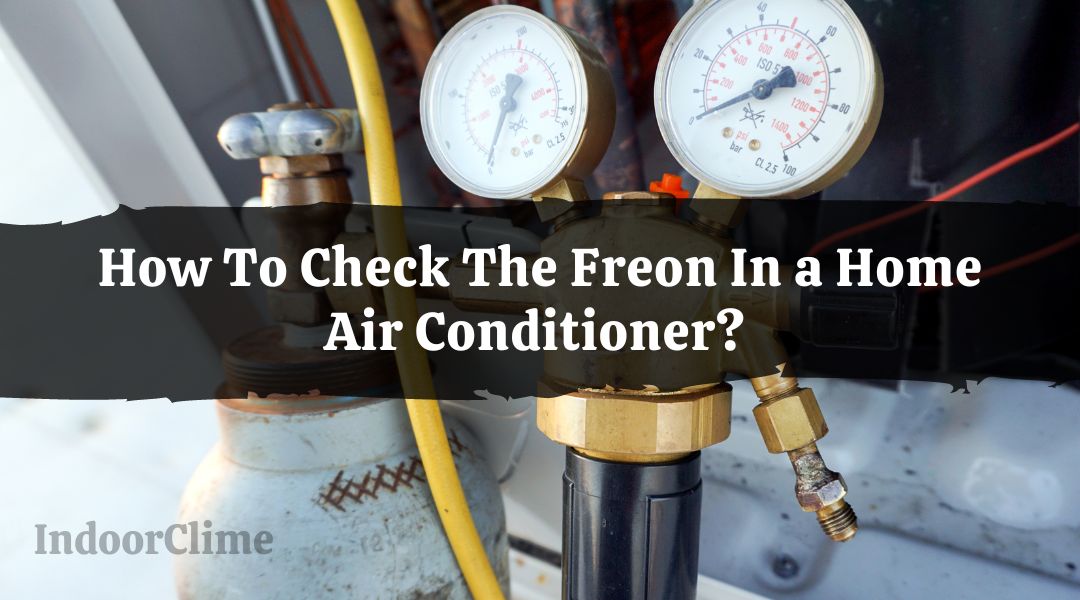
One of the most common questions homeowners and business owners ask about their air conditioning systems revolves around refrigerant, commonly known as Freon. "How often do air conditioners need Freon?" The answer, surprisingly, isn't a straightforward one, and understanding the nuances can save you money, improve your system's efficiency, and contribute to a more sustainable future.
The Myth of Routine Freon Replacements
Let's start by debunking a common misconception: air conditioners should not need routine Freon refills. Your AC unit operates as a closed-loop system. The refrigerant circulates, absorbing heat from inside your building and releasing it outside. If your system is functioning correctly, the same Freon should continuously cycle without needing to be topped off. Think of it like the coolant in your car – it doesn't just disappear; if it's low, there's a leak.
Therefore, if your HVAC technician recommends adding Freon as part of a routine maintenance check, it's time to ask some serious questions. A reputable technician will first investigate the root cause of refrigerant loss, which almost always points to a leak.
Identifying a Freon Leak: The Warning Signs
So, how do you know if your air conditioner is losing Freon? Keep an eye out for these telltale signs:
- Weak or Warm Airflow: This is often the most obvious sign. If your AC is running but the air isn't as cold as it used to be, a Freon leak could be the culprit.
- Increased Energy Bills: A leaking system has to work harder to cool your space, leading to a noticeable spike in your energy consumption. Monitor your monthly bills for unexplained increases.
- Ice Formation on the Evaporator Coil: Insufficient Freon can cause the evaporator coil (usually located inside your indoor unit) to become excessively cold and ice over.
- Hissing or Bubbling Noises: You might hear a faint hissing or bubbling sound coming from your AC unit or refrigerant lines. This indicates refrigerant escaping.
- Visible Leaks: In some cases, you might notice oily residue or stains near the refrigerant lines or connections.
If you notice any of these symptoms, contact a qualified HVAC professional immediately. Delaying repairs can lead to more significant damage to your compressor and other components, resulting in more expensive repairs or even a complete system replacement.
Finding and Fixing Freon Leaks: A Professional's Approach
A skilled HVAC technician will use specialized equipment to locate the source of the leak. Common methods include:
- Electronic Leak Detectors: These devices detect even tiny amounts of refrigerant escaping into the air.
- UV Dye Injection: A special dye is injected into the refrigerant lines, and a UV light is used to identify the leak location.
- Soap Bubble Test: A soapy solution is applied to potential leak points. Bubbles will form where refrigerant is escaping.
Once the leak is found, the technician will repair it, typically by brazing (welding) the leaking connection or replacing a damaged section of refrigerant line. After the repair, the system will be evacuated (have all air and moisture removed), and the correct amount of refrigerant will be recharged.
The Phased-Out Refrigerants and What It Means for You
It's important to understand that the refrigerant landscape is changing. R-22, commonly known as Freon, has been phased out due to its ozone-depleting properties. As of January 1, 2020, it is illegal to manufacture or import R-22. This means that if your air conditioner uses R-22 and develops a leak, the cost of refrigerant can be significantly higher due to its limited availability.
Newer air conditioning systems use more environmentally friendly refrigerants like R-410A (also known as Puron). While R-410A is not ozone-depleting, it does have a high global warming potential. The industry is moving toward even newer refrigerants with lower global warming potential, such as R-32.
If you have an older AC system that uses R-22, it might be time to consider replacing it with a more energy-efficient model that uses a modern refrigerant. While the upfront cost can be significant, the long-term energy savings, reduced repair costs, and environmental benefits can make it a worthwhile investment. Check with your local utility company and state energy office for potential rebates and incentives.
Energy Efficiency and the ROI of Upgrading Your AC
Upgrading to a newer, more efficient air conditioner offers several benefits beyond just avoiding Freon-related issues. Look for models with a high SEER (Seasonal Energy Efficiency Ratio) rating. SEER measures the cooling output of an AC unit during a typical cooling season divided by the total electric energy input during the same period. The higher the SEER rating, the more efficient the unit.
Energy Star certified air conditioners meet strict energy efficiency guidelines set by the U.S. Environmental Protection Agency (EPA). They typically have a SEER rating of 15 or higher, significantly reducing your energy consumption and lowering your utility bills. According to Energy Star, replacing an old AC unit with a certified model can save you up to 20% on your cooling costs.
To calculate the ROI (Return on Investment) of upgrading your AC, consider the following factors:
- Purchase Price: The initial cost of the new AC unit.
- Installation Costs: The cost of having the unit professionally installed.
- Energy Savings: The estimated annual savings on your energy bills. Use an energy savings calculator to get an approximate estimate.
- Rebates and Incentives: Any rebates or tax credits offered by your utility company or government agencies.
- Reduced Repair Costs: Newer units are less likely to require repairs, saving you money on maintenance.
Divide the total cost (purchase price + installation - rebates) by the annual savings to determine the payback period. A shorter payback period indicates a faster return on your investment.
Smart HVAC Integration: Taking Control of Your Comfort and Savings
Integrating your air conditioning system with smart home technology can further enhance energy efficiency and provide greater control over your indoor climate. Smart thermostats learn your preferences and automatically adjust the temperature based on your schedule and occupancy. They can also be controlled remotely via your smartphone or tablet, allowing you to adjust the temperature even when you're away from home.
Some smart thermostats offer advanced features like:
- Geofencing: Automatically adjusts the temperature when you enter or leave a predefined area.
- Energy Reports: Provides detailed insights into your energy consumption patterns.
- Zone Control: Allows you to control the temperature in different zones of your home independently.
- Integration with Smart Sensors: Uses data from sensors to optimize cooling based on occupancy, temperature, and humidity levels.
By using smart HVAC integration, you can fine-tune your system's performance, minimize energy waste, and create a more comfortable and efficient living environment.
Preventative Maintenance: The Key to Long-Term AC Health
While air conditioners shouldn't need regular Freon refills, preventative maintenance is crucial for ensuring their long-term health and efficiency. Schedule annual maintenance checkups with a qualified HVAC technician. These checkups typically include:
- Inspection of Refrigerant Levels: The technician will check the refrigerant levels and look for any signs of leaks.
- Cleaning of Coils: Dirty coils reduce the efficiency of the AC unit.
- Inspection of Electrical Components: Loose or damaged electrical connections can cause problems.
- Lubrication of Moving Parts: Lubricating moving parts reduces friction and improves performance.
- Air Filter Replacement: A clean air filter improves airflow and prevents dust and debris from entering the system.
Regular maintenance can help identify potential problems early on, prevent costly repairs, and extend the life of your air conditioning system. Many HVAC contractors offer maintenance plans that provide discounted rates and priority service.
Working with HVAC Contractors: Finding the Right Partner
Choosing the right HVAC contractor is essential for ensuring the proper installation, maintenance, and repair of your air conditioning system. Look for contractors who are licensed, insured, and experienced. Ask for references and check online reviews.
When discussing your needs with a contractor, be sure to:
- Clearly explain your concerns and requirements.
- Ask about their experience with energy-efficient systems.
- Get a detailed quote in writing before any work begins.
- Inquire about warranties and guarantees.
- Discuss the refrigerant options and their environmental impact.
A reputable contractor will be transparent, honest, and committed to providing you with the best possible service.
Conclusion: A Proactive Approach to AC Management
In summary, air conditioners should not require routine Freon refills. If your system is losing refrigerant, it indicates a leak that needs to be identified and repaired. By understanding the signs of a Freon leak, investing in energy-efficient equipment, embracing smart home integration, and prioritizing preventative maintenance, you can optimize your AC system's performance, minimize energy consumption, and save money on your utility bills. A proactive approach to AC management not only benefits your wallet but also contributes to a more sustainable future.
Remember to leverage available resources, such as Energy Star guidelines and local rebates, to maximize your savings and make informed decisions about your HVAC system.
By taking these steps, you can ensure that your air conditioning system operates efficiently and reliably for years to come, without the unnecessary expense and environmental impact of frequent Freon replacements.
